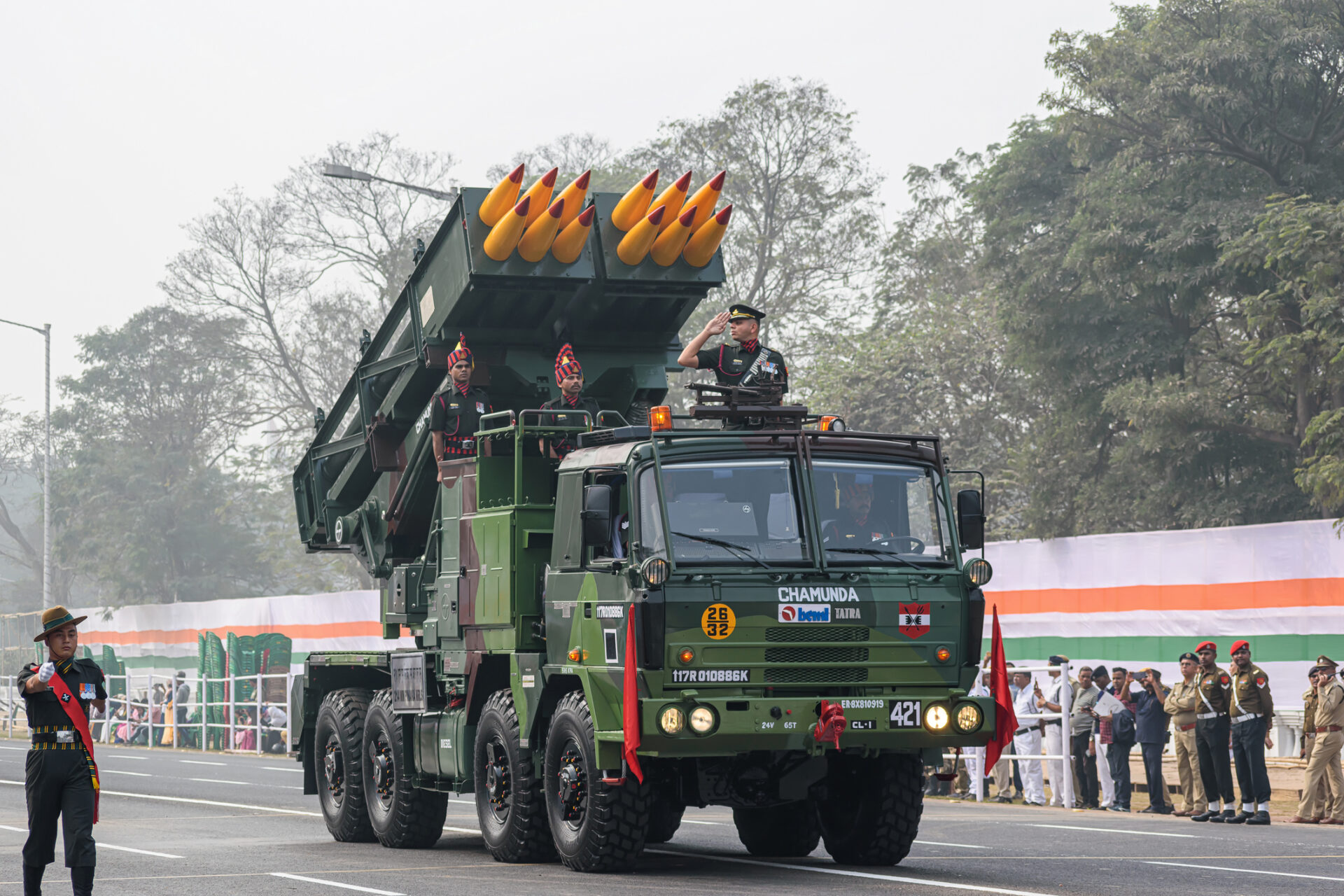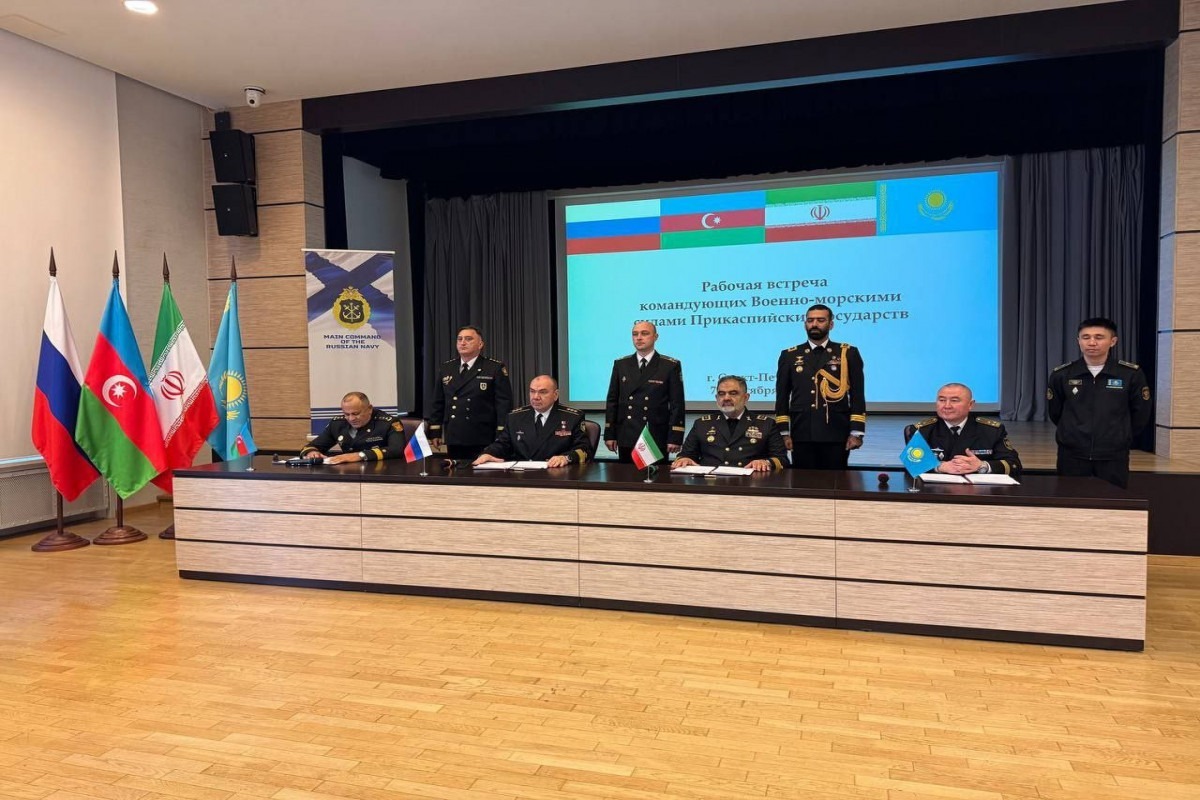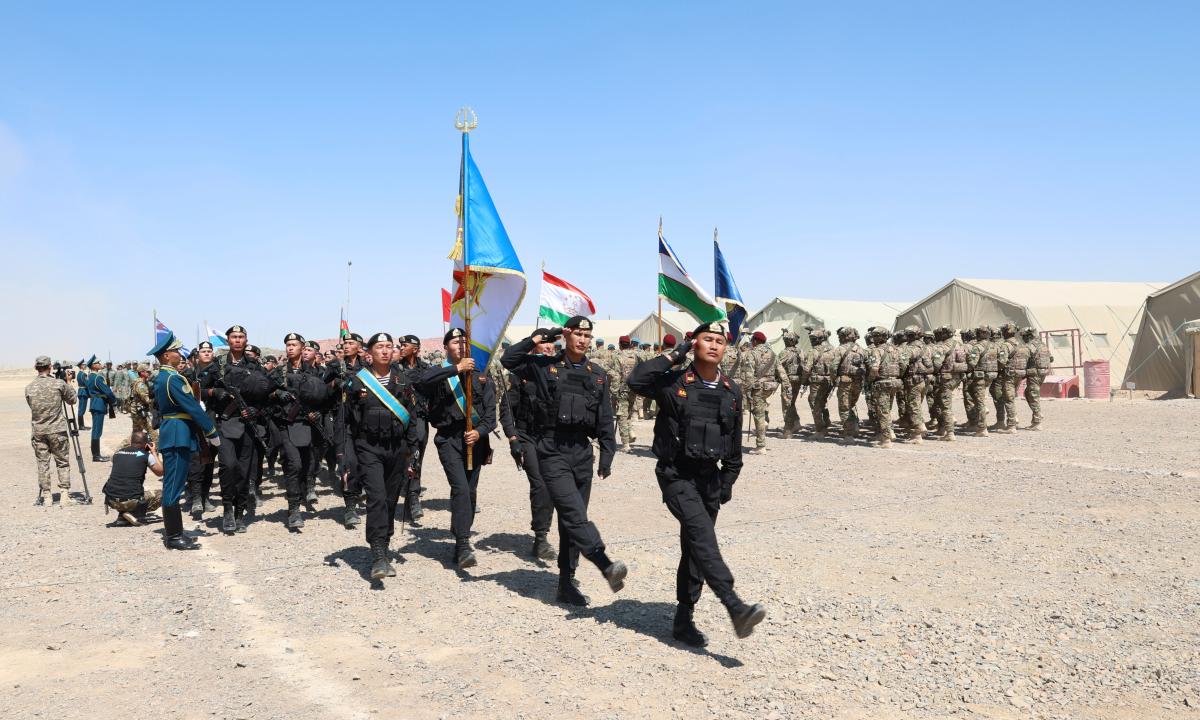
Azerbaijan and Kazakhstan Plan Joint Naval Maneuvers in Caspian Near Russian Border
Azerbaijan and Kazakhstan Plan Joint Naval Maneuvers in Caspian Near Russian Border
Executive Summary:
- Azerbaijan and Kazakhstan have announced they will hold joint naval exercises in the northern portion of the Caspian Sea near Russia’s coastline to prepare for any asymmetrical threat.
- While this announcement was overshadowed by Russian President Vladimir Putin’s ratification of a cooperation accord with Iran, it may prove as important because it casts doubt on Moscow’s ability to expand its North-South corridor to Iran and the Indian Ocean.
- This direct challenge to Moscow’s influence in the region is all the greater because Türkiye, which has been helping Azerbaijan expand its navy for years, says that it will do the same for Kazakhstan, which already has more ships on the Caspian than any other littoral state.
Azerbaijan and Kazakhstan announced on April 10 that they will hold joint naval exercises in the northern portion of the Caspian Sea near Russia’s coastline this summer to prepare for any asymmetrical threats (Report Information Agency; Kazakhstan Today, April 10; Caspian Herald, April 17). The joint naval exercises, called “Caspian Breeze – 2025” (Каспийский бриз – 2025, Kaspiiskii Briz – 2025), are a direct challenge to Moscow’s power and influence. The announcement has been overshadowed in news from the region by Russian President Vladimir Putin’s ratification this week of a cooperation accord with Iran. Azerbaijan and Kazakhstan’s announcement, however, may prove even more important than a Russia-Iran cooperation agreement because the former casts doubt on Moscow’s ability to expand its North-South corridor to Iran and the Indian Ocean by running roughshod over the interests of others (see EDM, August 8, 2023). Moscow is already expressing alarm about this possibility, and some in Russia, including Kremlin hawk Nikolai Patrushev, are calling for a military buildup in response (Kommersant; Parliamentary Newspaper, April 21). These concerns are certain to be intensified by Türkiye’s commitment to help Kazakhstan develop its navy, something that Ankara has long been doing for Azerbaijan. This is especially the case since Kazakhstan has more ships in the Caspian Sea than Russia, although they are currently smaller and less well-armed than their Russian counterparts (Ministry of Defense of Azerbaijan; Minival Politika, April 17). More importantly, the involvement of Türkiye, a member of the North Atlantic Treaty Organization (NATO), makes this effort a NATO move and thus anathema to Moscow (see EDM, August 1, 2023, January 21; Caspian Herald, April 21).
In Soviet times, the Caspian Sea was commonly viewed as a Russian lake, given that Iran was the only other country with a Caspian coastline, one that was relatively short. Tehran, in general, showed no interest in seeking to project power beyond coastal waters on that sea. Since that time, however, the situation has radically changed. There are three new countries involved–Azerbaijan, Kazakhstan, and Turkmenistan–which, similar to Iran, have their own interests in developing naval capabilities. Another change is Moscow’s increasing use of its Caspian Flotilla in out-of-area conflicts. This has included firing cruise missiles at Syria from its ships on the Caspian and moving those ships through the Volga-Don network to the Sea of Azov as part of Putin’s war against Ukraine, actions which have further reduced the overwhelming advantage in firepower Russia once had (Window on Eurasia, April 3, 2018; RBC Ukraine, May 5, 2022; The New Voice of Ukraine, November 7, 2024). As a result, Russia’s Caspian Flotilla is no longer the only force that matters there. The rapid siltification of the sea has also reduced the power of the Caspian Flotilla (see EDM, November 16, 2023, March 18). This development has made Russia’s large ships less useful as they require deeper water levels than Kazakhstan and Azerbaijan’s smaller ships (Window on Eurasia, March 13, 28). Russia’s relative position has declined significantly and will likely decline further as states such as Azerbaijan and Kazakhstan work together (see EDM, June 24, 2021).
Azerbaijan and Kazakhstan had two very different policies when their navies were formed in 1991 and 1993, respectively, through a process by which a certain number of Soviet vessels were transferred to each of them (Government of Kazakhstan, April 2, 2023; Ministry of Defense of Azerbaijan, accessed April 23). While both states first focused on search-and-rescue missions, Azerbaijan also considered its navy as a defender of its offshore petroleum platforms and pipelines while Kazakhstan was concerned with poachers and other threats emanating from the Russian Federation (see EDM, October 25, 2017; Window on Eurasia, March 20, May 9, July 3, 2021, May 2, 2022). Only in the past few years has Azerbaijan begun thinking about its navy in strategic ways. Its involvement in countering Russian activities began with its participation in small joint exercises with the Kazakh navy (Caspian Herald, April 21). The Caspian Breeze 2025 exercise announced for this summer marks a notable expansion of the focus on joint counter operations. Azerbaijan’s participation, both because of its recent problems with Moscow and because of its close links with Türkiye, means that Russian officials and commentators view this joint action as more significant for Russia than would otherwise have been the case (Moskva24, April 22).
On April 17, Azerbaijani and Kazakh naval officers met to discuss the upcoming exercises, which will be the largest ever (Caspian Herald, April 17). Captain Kanat Niyazbekov, deputy chief of staff of the commander of the Kazakh navy, said that among the most important tasks of this summer’s exercise were developing strategies and tactics for expanding cooperation between the forces of the two countries and figuring out how best to respond to “asymmetrical” challenges, code language for direct threats to the sovereignty of the countries involved. These words are certainly enough to cause concern for those interested in maintaining Moscow’s influence on the Caspian.
Patrushev, a Putin aide who oversees naval issues, viewed this move as a direct threat to Moscow’s naval doctrine, an unsurprising reaction given his history of exaggerated rhetoric toward foreign perceived threats (see EDM, April 30, 2024). Patrushev assigns a much larger role to the Caspian Flotilla than in the past, despite all the changes that have reduced its importance, and has demanded that Moscow take immediate action to build up its forces to counter what he sees as part of a NATO effort to isolate and weaken Russia (Parliamentary Newspaper, April 21). In this case, Patrushev’s view likely reflects that of others in Russian leadership, including Putin, who traditionally are sensitive to anything with a NATO connection near Russia’s borders. Whether they can find the funds to do something or whether instead they might take other actions, such as restricting movement of Kazakh or Azerbaijani shipping or putting pressure on railway freight routes, remains to be seen. The latter, however, are more likely given Russian Foreign Minister Sergei Lavrov’s tough language in Astana last week, during which he cited the Charter of the United Nations in disagreement with Kazakh President Kassym-Jomart Tokayev. Lavrov suggested that Moscow is at least ready to do something in that regard Putin’s phone call to the Kazakhstan president immediately after Lavrov’s words, however, caused an uproar, indicating that the Kremlin will likely move cautiously (Kommersant, April 14 [inserted this because it is the original interview]; Komsomolskaya Pravda, April 15; RIA Novosti, April 17).
There is little reason to think that Azerbaijan and Kazakhstan will back away from their efforts to expand their naval capabilities and increase their cooperation or that Türkiye will pull back from its support of both. Because of this resolve, Baku and Astana’s announcement is likely to cast a serious shadow on Russia’s hopes to expand its north-south trade corridor or gain influence in a region that is moving away from it. The exercise, which the navies of Azerbaijan and Kazakhstan are now planning, matters a great deal more than might appear at first glance in the geopolitics of this region and beyond.


